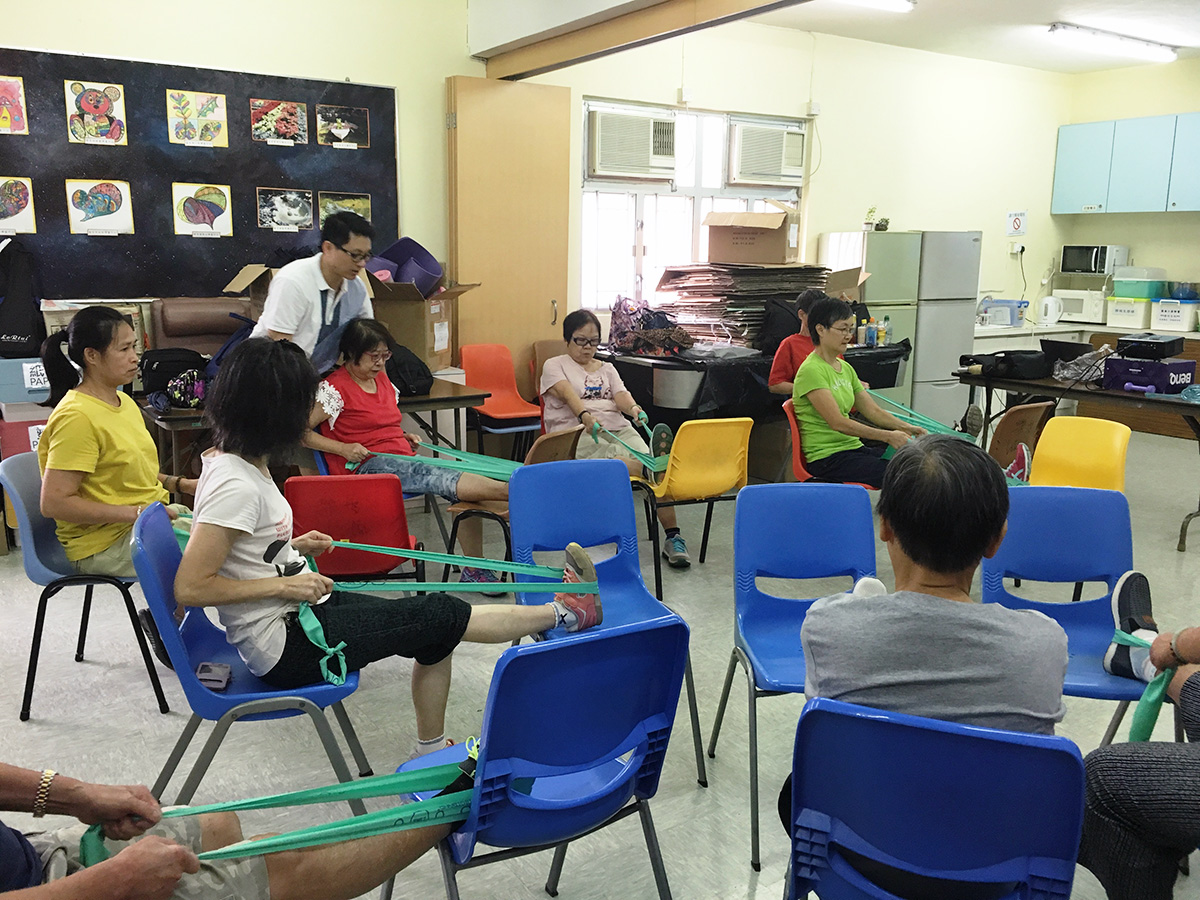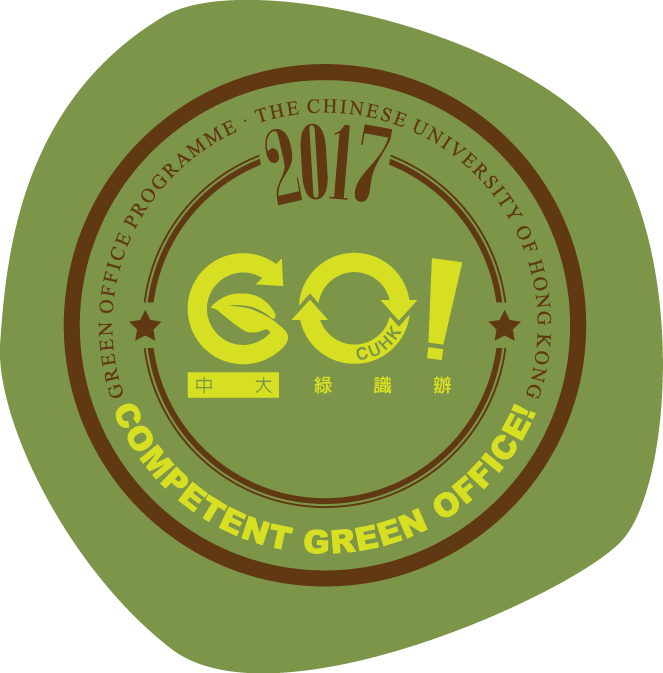HOME
JC Age-friendly City Project - p6_resources_r_sub02
Age-friendly Community and the Decade of Healthy Ageing
Resources
The Institute has developed a vast variety of resources and widely distributed to cross-sectoral stakeholders (i.e. policy makers public sector and other community stakeholders) and the public, in raising their awareness on age-friendly issues and facilitating them taking forward the age-friendly city campaign in the long-run. In the following sections, we broadly categorize these resources according to their media formats (i.e., publication vs. video), and respectively give a brief summary on their contents.
Happy Ageing – Eight domains of an Age-friendly City
This booklet introduces the eight domains of an age-friendly city and shares age-friendly good practices by domains, aiming to promote the implementation and development of age-friendly initiatives, encourage community participation and cultivate age-friendly culture in building a sustainable age-friendly city.
Healthy ageing – Healthy recipes and information
This booklet Introduces four healthy diet topics that are closely related to the elderly (including maintaining bones density, keeping muscles strong, preventing dementia, strengthening immune system) and shares healthy recipes for the elderly’s and their carers’ reference. The healthy diets were co-designed by dietitian and the older people who particitpated in Jockey Club Age-friendly City Project – Active Ageing Programme 2019.
JC Age-friendly City Project - p6_resources
Age-friendly Community and the Decade of Healthy Ageing
Resources
The Institute has developed a vast variety of resources and widely distributed to cross-sectoral stakeholders (i.e. policy makers public sector and other community stakeholders) and the public, in raising their awareness on age-friendly issues and facilitating them taking forward the age-friendly city campaign in the long-run. In the following sections, we broadly categorize these resources according to their media formats (i.e., publication vs. video), and respectively give a brief summary on their contents.
Strategies for creating an age-friendly city: Hong Kong as a case study
This book thoroughly chronicles the strategies adopted by Jockey Club Age-friendly City Project in advancing age-friendly city movement in Hong Kong and its social impact, explores the origins of the concept of an age-friendly city and its development globally and in Hong Kong, as well as provides recommendations for the future advancement of age-friendly cities.
The book has been included in the Global Database of Age-friendly Practices in the website of World Health Organisation. For details, please click here.
Thematic reports on age-friendly city domains
Four thematic reports were developed to provide detailed exploration on the case of Hong Kong regarding four domains of an age-friendly city, namely Outdoor spaces and buildings, Transportation, Communication and information, as well as Community support and health services. Each report highlights the current situations of age-friendliness of the domain and its age-friendly policies and measures in Hong Kong, and proposes recommendations to the Government and other relevant parties taking account of the final assessment findings on age-friendliness.
Age-friendly City Guidebook
This Guidebook consolidates the experience of the Jockey Club Age-friendly City Project in building an age-friendly city in Hong Kong, which provides practical guidance and useful resources for policy makers, public sector and other community stakeholders in taking forward the age-friendly city campaign in the long-run in respect of design, implementation, monitoring and evaluation of age-friendly strategies and initiatives.
Jockey Club Age-friendly City Project Evaluation Report
The report covers the evaluation findings on the effectiveness of Jockey Club Age-friendly City Project including significant outcomes, achievements and impacts. Best practices of building an age-friendly city were also consolidated.
Reports on "Hong Kong Elder Quality of Life Index" and "AgeWatch Index for Hong Kong"
The “AgeWatch Index for Hong Kong” was developed since 2014 and subsequently extended to “Hong Kong Elder Quality of Life Index” to assess the elderly well-being in a comprehensive manner with locally significant indicators covering four domains, including Income Security, Health Status, Capability, and Enabling Environment, which can serve as a useful reference on policy planning of age-friendly interventions in Hong Kong. A total of six Index reports and four Topical reports were published.
Baseline and Final Assessment Reports on Age-friendliness
Based on the framework of eight domains of an Age-friendly City set out by WHO, the Institute conducted baseline assessment and final assessment on the level of age-friendliness in five local districts, namely Kwai Tsing, North, Sai Kung, Sha Tin and Tai Po. Each report contains the findings of age-friendliness assessment study with questionnaire survey and focus group interviews to assess the level of age-friendliness and and identify strengths and weaknesses, as well as areas for enhancing the age-friendliness for each district.
Cross-district Report of Baseline Assessment on Age-friendliness
This report contains the city-wide research findings of baseline assessments of all 18 districts of Hong Kong aiming to assess the level of age-friendliness and identify areas for improvement. It provides a holistic understanding on Hong Kong’s strengths and weaknesses in age-friendliness and offers useful insights for policy makers, business sector and different stakeholders in planning and developing age-friendly initiatives.
(Research data were contributed jointly by CUHK Jockey Club Institute of Ageing, The University of Hong Kong Sau Po Centre on Ageing, Lingnan University Asia-Pacific Institute of Ageing Studies, and The Hong Kong Polytechnic University Institute of Active Ageing under “Jockey Club Age-friendly City Project”.)
JC Age-friendly City Project - p5_knowledge-transfer_kt_sub04
Age-friendly Community and the Decade of Healthy Ageing
Public Education Activities
Combatting negative perceptions of ageing and raising public awareness of AFC is imperative to cultivate an age-inclusive society. The institute has organized various types of public education activities (e.g. public forums and exhibitions, training workshops, road show, and etc. ) to spread AFC messages the wider public of different ages and with different backgrounds.




JC Age-friendly City Project - p5_knowledge-transfer_kt_sub03
Age-friendly Community and the Decade of Healthy Ageing
AFC Programme
Active Ageing Programme 2018 – 2020
With funding support from the Hong Kong Jockey Club Charities Trust, the Institute organized three batch of the Active Ageing Programme (AAP Programme) from 2018 to 2021 in three districts of Hong Kong, containing North District, Sai Kung District and Kwai Tsing District. The AAP 2020 was a multicomponent health program set out to encourage older people develop a healthy lifestyle and hence maintain their functionality for active and healthy ageing. Throughout the AAP, older people not only gained knowledge on healthy ageing, but also transferred their learnt knowledge to the community through co-production approach.
In the first two phase of the AAP, a group of older people were recruited to be health ambassadors and equipped them with the ability of self-health management and age-friendly city concept. A series of training sessions were delivered by the certified physical trainer and dietitian to equip older participants with the knowledge and skills on proper exercise (e.g. muscle training, aerobic and stretching exercises), nutrition and dietary. Under the instruction of physical trainer, they also conducted on-site audit on fitness facilities in parks of the district and learn how to use the fitness facilities properly under the instruction of physical trainer.
In the final phase of the AAP, the trained older adults were facilitated to provide support on promoting the message of age-friendly city and healthy ageing to the community. Under the guidance of dietitian, they designed different nutritious menus for elderly people and produce Healthy Diet Booklets for distribution to elderly service centers in the district. They were encouraged to take part in the production of a series of online videos on physical fitness exercise and healthy diets to encourage older people form a habit of regular exercising and eating healthy in the daily life. Those online videos were disseminated via online platforms and social media during the COVID-19 pandemic, when social distancing measures restricted older people’s involvement in social activities and reduced their mobility contributing to frailty. It enabled older people and carers to do exercises and cook healthy food by themselves at home, and thereby remain healthy ageing during the pandemic.









































